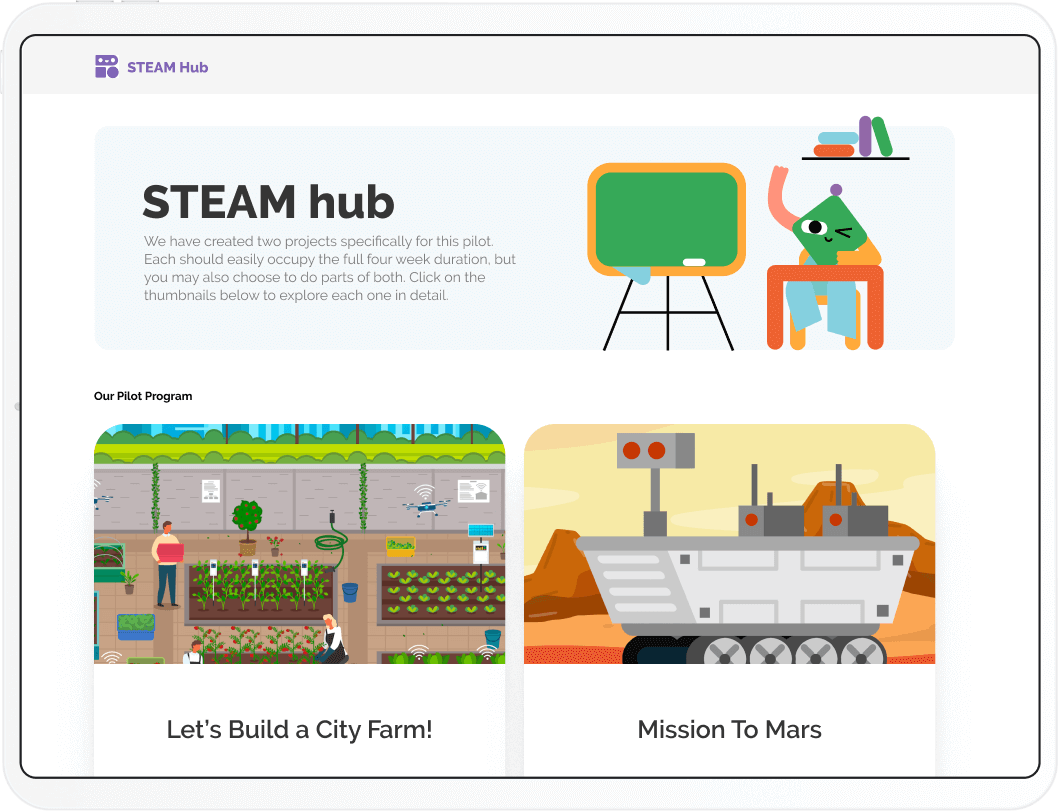
Play-based education: turning mistakes into a positive experience
.png)
The Robo Wunderkind curriculum is a priceless educational tool. Not only does it introduce kids to the basics of robotics and programming, but it also reflects on the latest and well-attested educational trends and theories. Such as experiential learning.
As we figure out the best way to playfully engage children in programming and robotics, we look upon the most knowledgeable findings of educators, psychologists, and scientists for inspiration. We constantly revisit our findings and practice what we preach in classrooms with experienced teachers and children hungry for knowledge.

One of such concepts that we work with is play-based education, which makes sense, considering that our main product is a robotic toy. But that isn’t the only reason play-based learning, or experiential learning, is such a successful technique.
The concept itself, which is part of a larger concept called constructivism, is a circular process of learning by making mistakes, figuring out why and how they happened, trying to fix them, and then avoiding them in the future. It consists of four stages:
- Concrete experience (kids play independently with Robo to solve a set task)
- Reflective observation (they see what works and what doesn’t)
- Abstract conceptualization (thinking of ways to improve in the next attempt)
- Active experimentation (trying it all once again, taking into account the pattern of previous experience, thought, and reflection)
You can easily see why these fare so well with the kids – they come naturally to them, as they often embark on such missions without even trying.

In all of our story-based lessons, you’ll see an experiential pattern constructed in a way that engages pupils with the content and boosts their motivation. They all consist of four key activity stages:
- Lead-in of the kids to activate their previous knowledge and personal experiences
- Guided activity in which they solve different challenges and gather knowledge through cooperative coding and discussions
- Independent activity that leads to consolidating the learned skills by making their own project
- Final reflection and feedback. Children discuss the difficulties and mistakes that they came across throughout the lesson in order for them to understand how to avoid them in the future.
Since each lesson story contains a relatable problem to be solved through the kids’ creativity and ingenuity, it emulates a real-life situation that all of us experience on a daily basis: encountering a problem, using our previous experience to think of how to solve it, seeing if it works, and then learning from the whole process as a result, reflecting on how to incorporate the modified pattern into our future behavior. In this way, we are subconsciously preparing kids for such situations, while also teaching them to have a positive attitude towards mistakes and self-critique.
This is all to say that our learning isn’t abstract. It encourages children to think freely and independently and to solve problems on their own or through cooperation with other children. They are always encouraged to think of the work they do and the purpose behind it. The main goal is to make them as comfortable with similar issues in their future – which is why Robo doesn’t only teach them programming and robotics, but also computational thinking and problem-solving skills. What is more useful than that?

This, and much more, will be discussed and demonstrated at our stand D89 at the BETT show in London (January 23-26). If you’re around, do come by with any questions you might have about Robo and our curriculum. We’ll be excited to meet you!
“
Love What You’re Reading?
Subscribe to our newsletter to get more just like it, sent straight to your inbox.
Gefällt Dir, was du liest?
Melde dich für unseren Newsletter an, um weitere Informationen direkt in deinem Posteingang zu erhalten.














.png)
%20(1).png)

